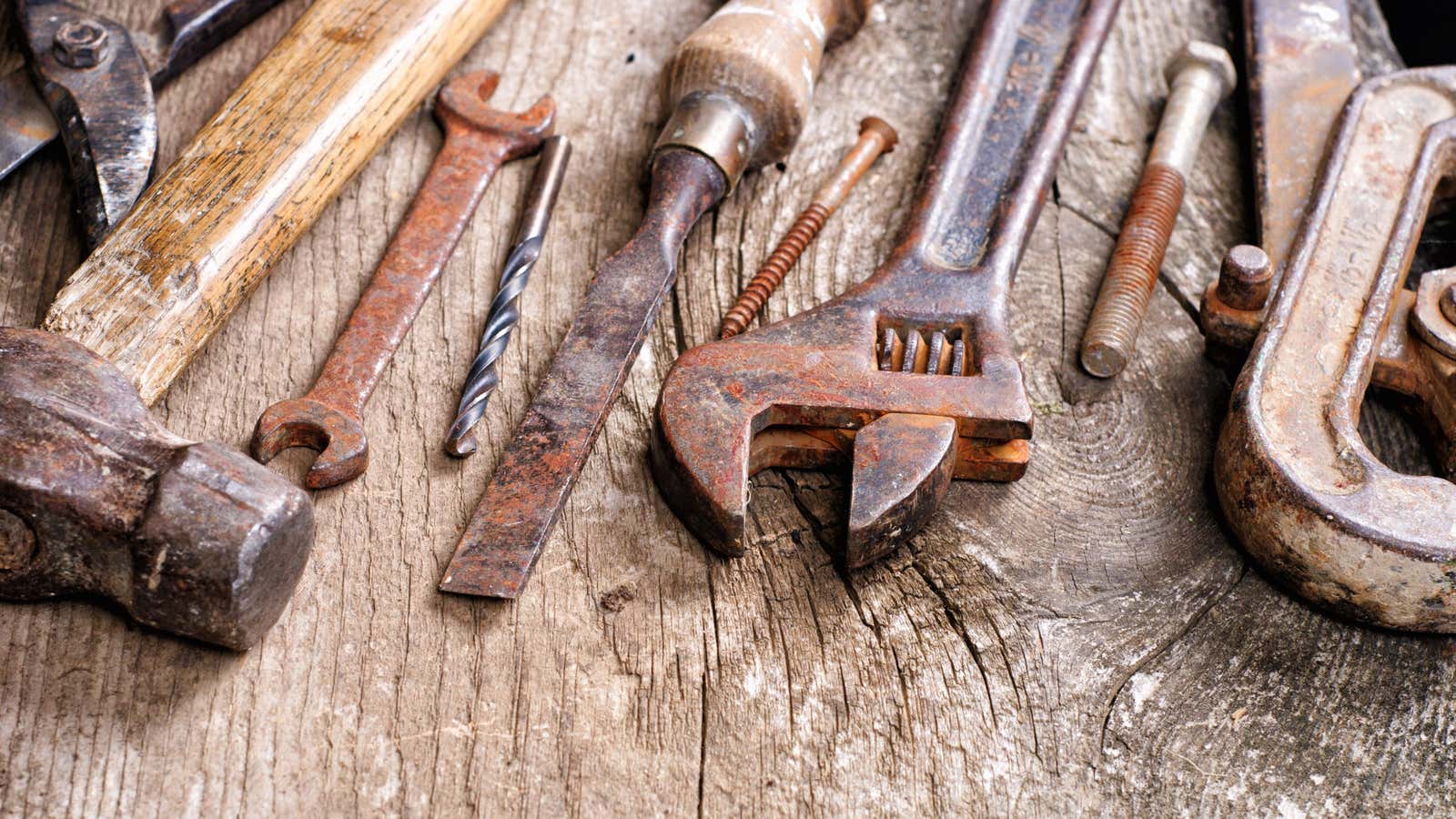How to Clean Tools From Rust (and Prevent It From Reappearing)

Whether you inherited them from your parents and grandparents or acquired them at a great price at a yard sale or flea market, you may have rusty tools in your home, basement or garage right now. And maybe one day you need a wrench, a hammer, or a garden trowel, you’ll reach for one of those rusty tools and realize it’s time to put them back in working order.
Fortunately, there are several ways to do this, as well as ways to prevent rust. Here’s what you need to know.
How to remove rust from tools
There are several different ways to remove rust, some of which require more effort than others. (Of course, this also depends on how much rust has accumulated on your tools over time.) Here are a few options.
Rinse and sand
First, wash the instruments in a bath of warm water with dishwashing detergent to remove grease and dirt . Rinse and dry the instruments thoroughly. Then, depending on the degree of rust, use a sponge, steel wool, sandpaper, or a wire brush to remove as much of the rust as possible.
let it soak
Again, start by washing your tools in warm, soapy water to remove grease, dirt, and debris. Then take a bucket or basin large enough to hold your tools. Place the tools in a bucket and then pour enough of one of these liquids over them until they are completely submerged in water.
- White Vinegar : Leave tools to soak overnight or 24 hours. You may need to use a wire brush or sandpaper to remove the last remaining rust, but it should come off relatively easily.
- Citric Acid : For every gallon of hot water in the bucket, add 1/3 cup citric acid . Mix the solution well, then add the tools and make sure they are completely covered. Some tools will be ready in a few hours; others will have to soak overnight.
- Oxalic Acid : For every gallon of water, add three tablespoons of oxalic acid . Add and load tools. Check them out in 20 minutes. Leave them in the big one longer if they’re not quite there yet.
After the instruments have completed their acid baths, rinse them with clean water and dry thoroughly.
How to prevent new rust from forming
Once your tools are rust free (or close to it), double check to make sure they are completely dry. Then spray or rub a small amount of multipurpose oil such as WD-40, mineral oil, boiled linseed oil to seal the instrument. For extra protection, apply a coat of lacquer or clear coat .
Going forward, be sure to store your tools in as dry a place as possible . And keep it clean: dust attracts moisture.